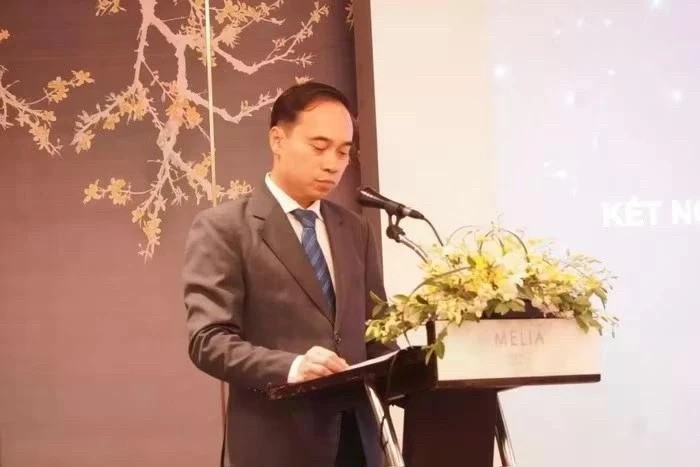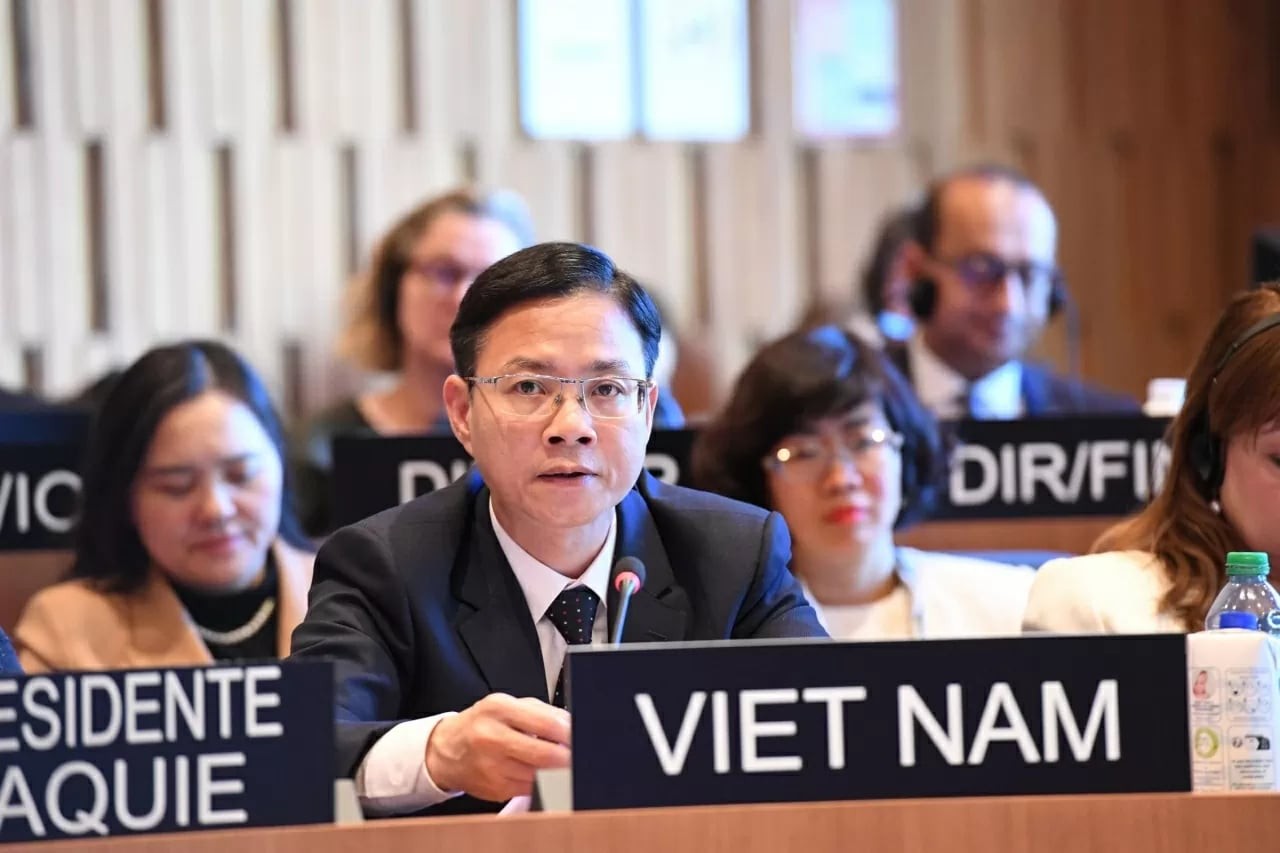Vietnam Continues to Enhance Soft Power: Deputy Foreign Minister
At this session, Vietnam was elected Vice President of the General Assembly. What will Vietnam do to fulfill this responsibility?
At the 42nd Session of the UNESCO General Assembly, Vietnam was elected a Vice President of the General Assembly, representing Asia-Pacific. This is the first time we have held this position at one of the two most key governing bodies of UNESCO.
The election holds importance in many aspects as it affirms the country’s stature and prestige in the world as well as the international community’s trust in Vietnam's contributions and chairmanship capacity at global multilateral forums. In addition, the position is following the spirit of the 13th National Party Congress Resolution and Directive No. 25-CT/TW on promoting and elevating multilateral diplomacy.
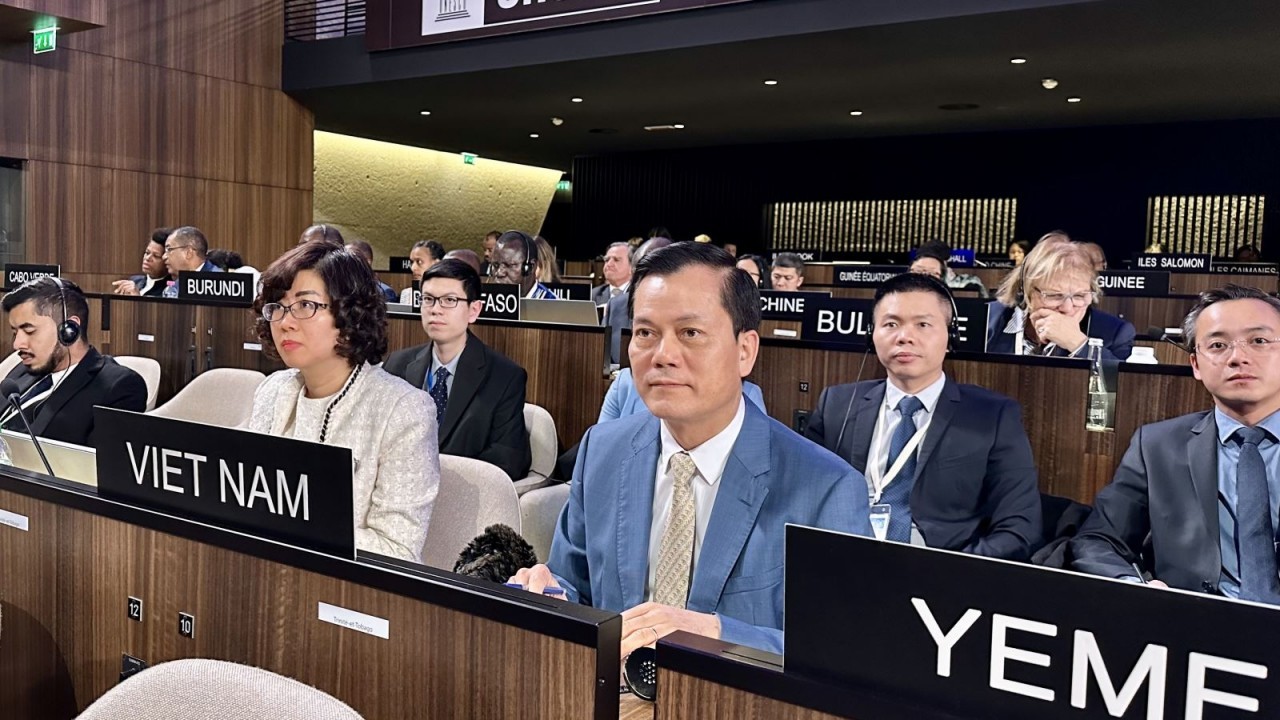 |
| Deputy Minister of Foreign Affairs Ha Kim Ngoc at the 42nd session of the UNESCO General Conference. |
As the representative of the Association of Southeast Asian Nations (ASEAN) and the Asia-Pacific, which has a large number of members with varying development levels, politics, cultures, sizes, interests, and priorities, Vietnam will continue coming into play the soft power from its national prestige and the capacity of grasping common concerns, harmonizing interest differences among members, negotiating, chairing, leading, and proposing initiatives to build consensus and seek appropriate solutions to urgent issues of the Asia-Pacific and UNESCO.
Vietnam will proactively join in the shaping of the UNESCO cooperation in issues of shared concern. In particular, the country will propose policies and promote UNESCO’s leading role in multilateral cooperation in education - training, culture, science-technology, and information communications to maintain peace, respond to global challenges, and assist countries in augmenting efforts to realize the Sustainable Development Goals.
In addition, Vietnam will contribute to the implementation of UNESCO’s focal programs such as the Medium-Term Strategy for 2022-2029, the program and budget for 2024-2025, Open Science, the ethics of artificial intelligence (AI), education for sustainable development, the preservation and promotion of cultural heritage values, climate change response, and the reform of UNESCO to enhance the reputation of the organization and its democracy and transparency, in line with general multilateral trends.
The active and responsible contributions of Vietnam to promoting dialogue, cooperation, consensus, and seeking solutions to issues of shared concern amid the highly complicated international situation have been welcomed by leaders of UNESCO and other countries. That has not only affirmed the pioneering role of Vietnam’s diplomacy but also demonstrated the country’s soft power and reputation.
What is your assessment of Vietnam's recent contributions to UNESCO's activities?
Over 47 years of partnership, Vietnam has continually been assessed as a dynamic and responsible member by UNESCO leaders. The UNESCO Director-General described Vietnam as “a model of effective cooperation with UNESCO”. In particular, since the historic visits by Vietnamese Prime Minister Pham Minh Chinh to the UNESCO headquarters in November 2021 and UNESCO Director-General Audrey Azoulay to Vietnam in September 2022, and with the implementation of the two sides’ memorandum of understanding on cooperation for 2021-2025 period, the bilateral partnership has been promoted to a more substantive and effective level, which marks a new level of Vietnam's contribution to UNESCO.
First, Vietnam has concurrently held positions at four governing mechanisms of UNESCO for the first time, namely Vice President of the General Conference, Vice Chair of the UNESCO Intergovernmental Committee of the 2005 Convention on the Protection and Promotion of the Diversity of Cultural Expressions for the 2021-2025 tenure, member of the Executive Board, and member of the Intergovernmental Committee of the 2003 Convention for the Safeguarding of the Intangible Cultural Heritage. This affirms the international community’s trust in the contribution and chairmanship capacity of Vietnam at this multilateral organization.
 |
| Deputy Minister of Foreign Affairs Ha Kim Ngoc delivered a speech at the 42nd session of the UNESCO General Conference. |
Second, the high-level contributions to the shaping of strategic issues and global policies are another success of Vietnam at UNESCO. The active roles of the Vietnamese Minister of Culture, Sport, and Tourism at the UNESCO World Conference on Cultural Policies and Sustainable Development; the Vietnamese Minister of Science and Technology at the opening ceremony of the International Year of Basic Sciences for Sustainable Development; the Vietnamese Minister of Education and Training at the Transforming Education Summit were highly appreciated by UNESCO leaders, which affirms our international position and reputation.
Third, Vietnam has successfully organized numerous important international activities, such as the celebration of the 50th anniversary of the World Heritage Convention, which was attended by the UNESCO Director-General; The 20th Anniversary of the Convention for the Safeguarding of the Intangible Cultural Heritage; the Conference on science, ethics, and human development, and the Conference on volcano speleology and global geoparks in 2022. Especially, the International Conference on Harnessing UNESCO Designations for Sustainable Development in Vietnam held in Ninh Binh province last July is the first on this topic held so far, which is in line with the interest of members and the trend of UNESCO in linking titles for sustainable development. Many valuable lessons and good examples were drawn during the conference to share within the framework of UNESCO and are useful to countries in the process of socioeconomic development.
Fourth, Vietnam has received UNESCO recognition for 13 titles and heritage elements since 2021, including documentary, tangible and intangible cultural heritage, two world biosphere reserves, two global creative cities, one global learning city, and two world figures of culture.
Fifth, the fact that Vietnam has 13 titles and heritages registered by UNESCO from 2021 until now, including tangible heritage, documentary heritage, intangible cultural heritage, reserves world biosphere, global creative cities, global learning city, and world cultural celebrities not only demonstrates the international community's recognition for the value of Vietnamese national heritage and culture; the intelligence, qualities, character, and noble ideals of the Vietnamese people, contributing to UNESCO's efforts in preserving heritage, cultural values and promoting sustainable development, inclusive, but also creates more momentum for the socio-economic development.
Economic benefits are the goal to be achieved in the context of vigorous development, yet heritage preservation occasionally faces hurdles and risks. What will Vietnam do to ensure economic development while also preserving its heritage?
The 13th National Party Congress document underlined the important relationship "between economic growth and cultural development, progress implementation, social justice, and environmental protection." The socioeconomic development strategy for the period 2021-2026 affirms that "...rapid and sustainable development...; harmonious development between economy, culture, society, environmental protection, and adaptation to climate change" is one of the country's key tasks for long-term development. Our Party and State's general goal is not to pursue economic growth at any cost, not to "sacrifice" progress, social fairness, cultural values, and environmental protection to promote economic growth.
 |
| At the 42nd session of the UNESCO’s General Conference. |
Harmonizing the relationship between conservation and development, preservation and exploitation, and economic and cultural goals is an issue that all countries face. As a result, it is necessary to ensure conservation for development and development creating motivation for conservation as development is the process of "turning heritage into assets". However, it is necessary that we don’t change the nature of heritage but return to serve and invest in heritage conservation. Experience from other countries shows that it is necessary to raise awareness about preserving and promoting heritage values; improve the effectiveness of state heritage management by continuing to review and improve the system of legal documents on cultural heritage; emphasize the role of communities and people; and strengthen heritage education.
In recent years, the work of preservation and promotion of our heritage values has gained many achievements, contributing to the protection of cultural values and socio-economic development. The Director General of UNESCO, when visiting the Trang An Monuments and Scenic Landscape Complex and the Hue Monuments Complex in September 2022, commented that Vietnam is a successful example of the connection between economic and cultural development and a good model for environmental conservation and sustainable tourism development. The Director of the World Heritage Center also emphasized during his visit to Vietnam in March 2023 that Vietnam’s world heritage is no longer the property of Vietnam, but the heritage of all humanity.
Vietnam has the responsibility to preserve, conserve, and promote heritage values for future generations. It is believed that Vietnam has experience in managing, preserving, and promoting heritage, and can continue to serve as a model for other countries throughout the world.
| Vietnam has had 13 titles and heritage sites recognized by UNESCO since 2021, including World Heritage Site Ha Long Bay - Cat Ba Archipelago; two intangible heritage (Xoe Thai Art and Cham Pottery Art); two documentary heritages under the Memory of the World Program in the Asia-Pacific region (Ma Nhai Marble Mountains in Da Nang and Truong Luu Village in Ha Tinh); two new world biosphere reserves (Nui Chua and Kon Ha Nung); two global creative cities (Da Lat and Hoi An); one Global Learning City (Cao Lanh, Dong Thap); two world cultural celebrities (Nguyen Dinh Chieu and Ho Xuan Huong). |
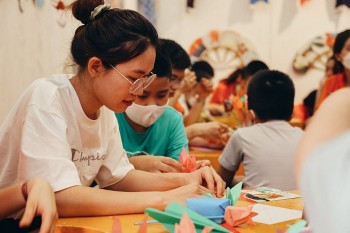 | Promoting Culture Seen as Key to Enhance Soft Power by Many Countries In the context of intensive international integration, culture and cultural promotion activities play an increasingly important role. Many countries focus on those activities to consolidate ... |
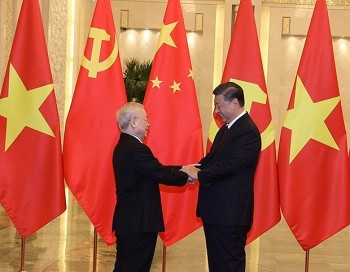 | Vietnamese 'Soft Power' - A Driving Force for Development Vietnam reopened its doors at the start of the year following a two-year hiatus caused by pandemic, creating conditions for diplomatic activities to reach full ... |
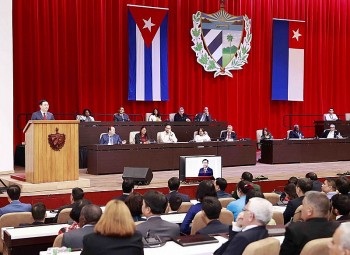 | Parliamentary Diplomacy Promotes "Soft Power" to Enhance Vietnam's Position Effectively deployed parliamentary diplomacy is an important driving force in deepening the friendship, comprehensive and multi-faceted cooperation between Vietnam, international partners and friends. |
Recommended
 National
National
Vietnam News Today (Jun. 2): Vietnamese Trade Mission Sounds Out Business Opportunities in United States
 National
National
Vietnam News Today (Jun. 1): Vietnamese, Japanese Firms Foster Partnership
 National
National
Vietnam News Today (May 31): Vietnam Strongly Supports Laos’s National Development
 National
National
Vietnam News Today (May 30): Vietnam, Venezuela Reinforce Ties Through People-to-people Diplomacy
 National
National
Vietnam News Today (May 29): Vietnam and Hungary to Expand Cooperation into New Areas
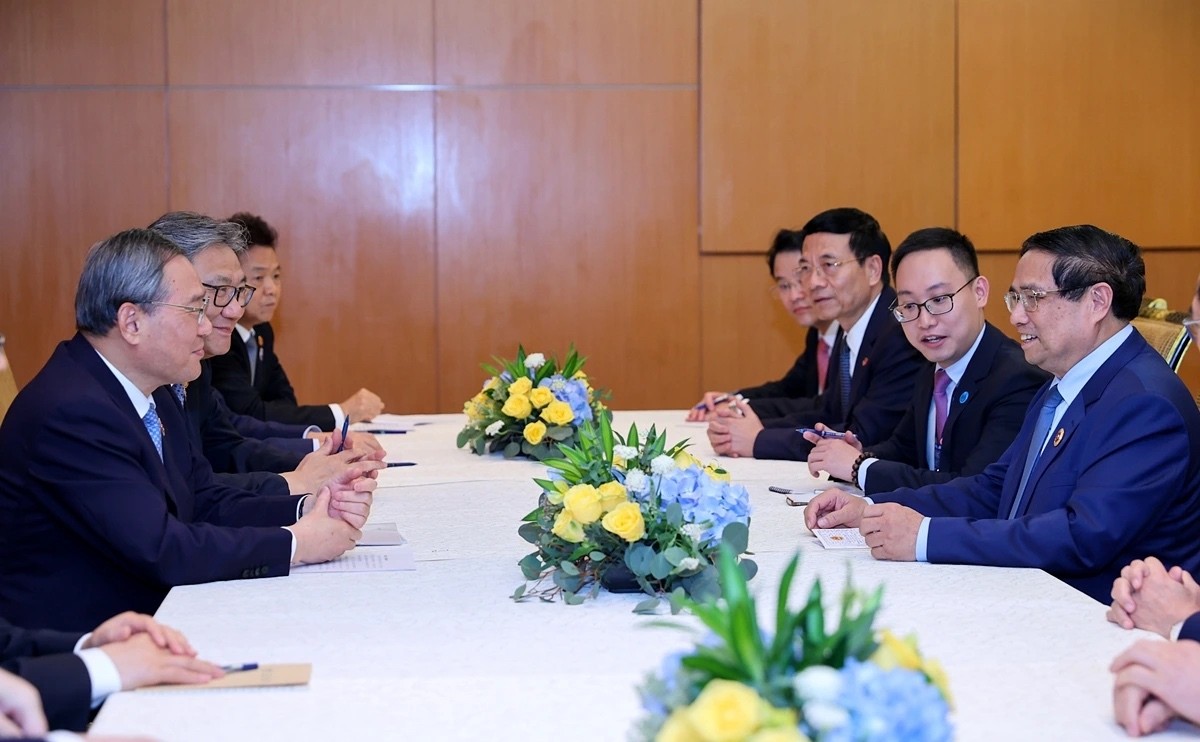 National
National
Vietnam News Today (May 28): Vietnam and China Discuss Strategic Cooperation Orientations
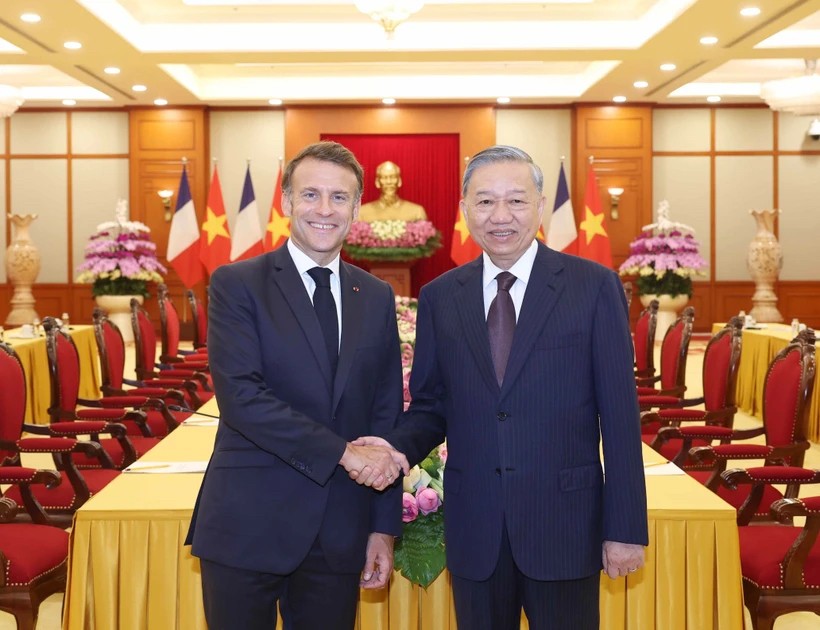 National
National
Vietnam News Today (May 27): Vietnam Treasures Multifaceted Collaboration with France
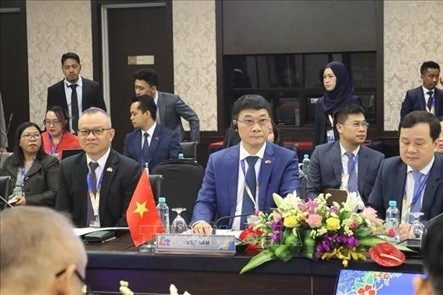 National
National

